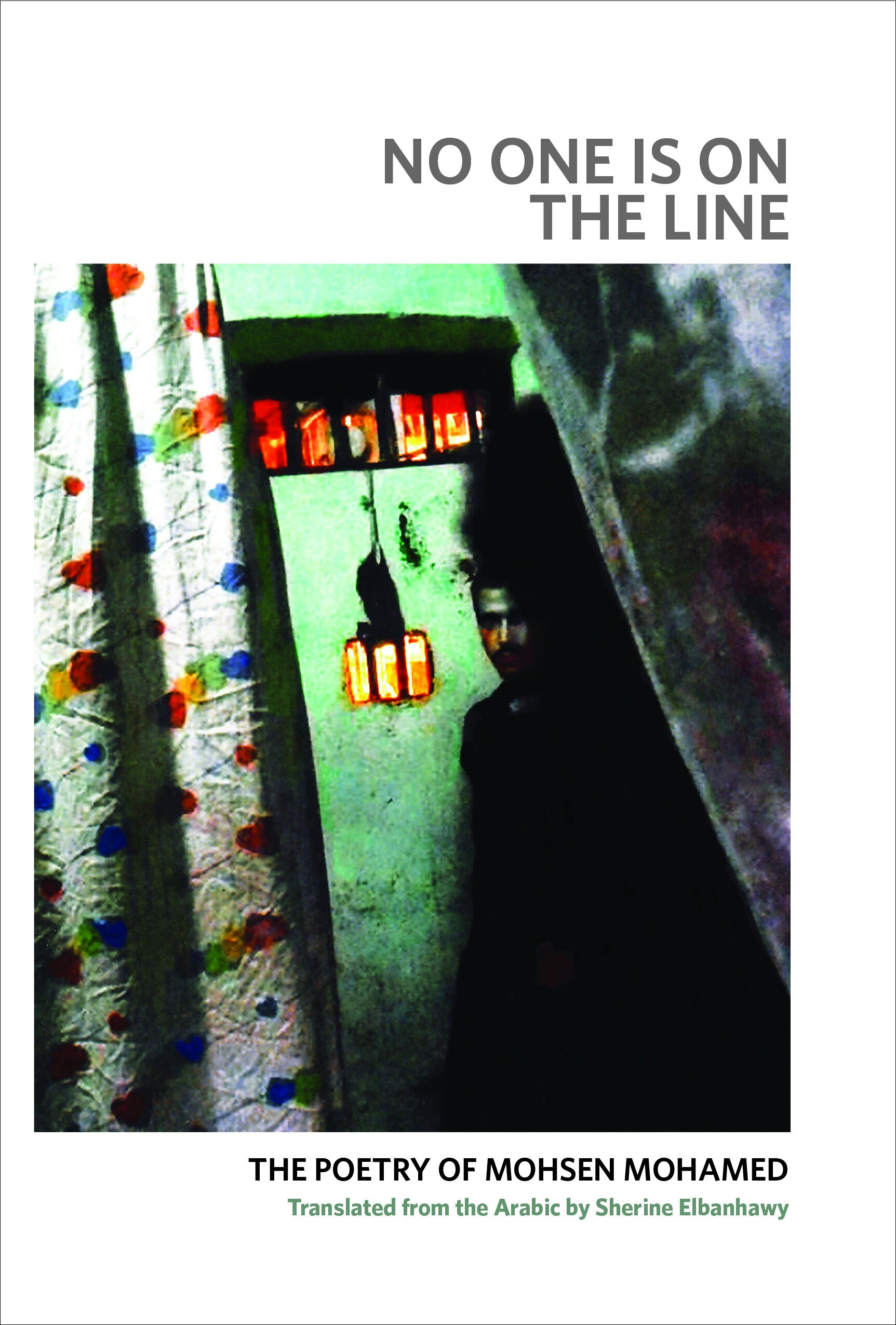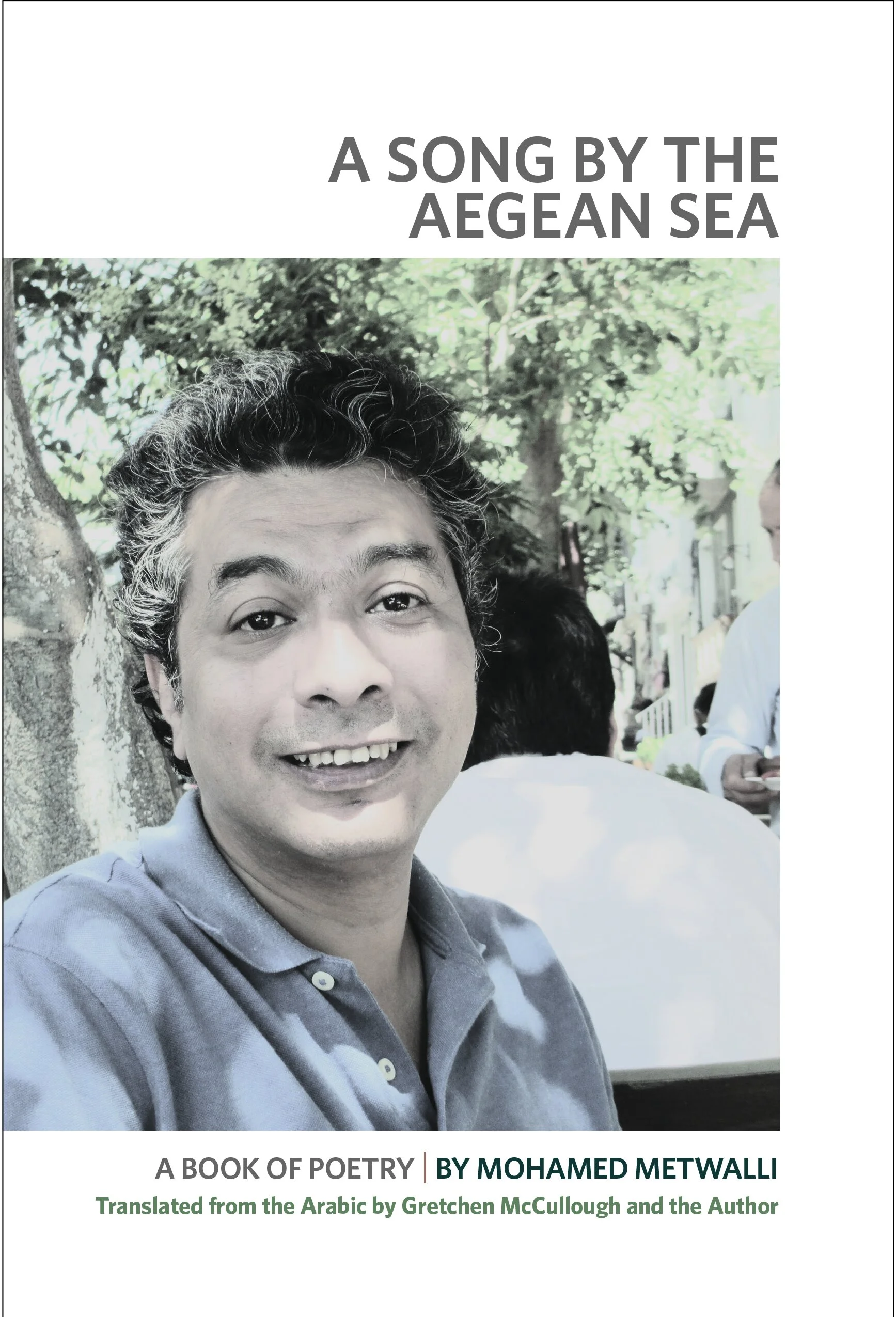A strong endeavor by a blossoming poet, his traumatic experience allowed him to discover the humanity of how people are able to overcome and adapt even under the harshest of conditions.
Poetry was how Mohsen Mohamed was able to cope with the long days of confinement and resist his feeling of powerlessness. He was able to find the patience to endure his deferred youth until he was released from prison, vindicated by this collection of poems which adds to the library of Egyptian colloquial poetry.
Mohsen Mohamed is an honest poet with a new dictionary, a keen eye for details and surprising twists, and a great talent.
—Amin Haddad, poet, winner of the International Cavafy Prize for poetry
More on Mohsen Mohamed and Sherine Elbanhawy
**Free shipping on international orders
Softcover — ISBN 978-1-942281-30-6 — 100 pages
Tourists, Roma people, lovers, sex-workers, and sailors are strangers caught up in a struggle to break out of the deep alienation of modern life. The incredible beauty of the Aegean haunts all of them and intertwines their lives in surprising ways. —Joselyn Michelle Almeida, Banipal: Magazine of Modern Arab Literature
An enticing mélange of surrealism and realism. Presented with fascinating madness. —Wadih Sa’adeh, poet, his works include Dust, Text of Absence, Attempt to Connect Two Shores with Sound, and Tell the Passenger to Come Back, He Forgot his Shadow Here
These exuberant, often humorous, richly imagined poems by Mohamed Metwalli are set in the ancient coastal city of Izmir and peopled by lovers, tourists, fishermen, prostitutes, construction workers, musicians, gypsies, card players, lunatics, and ghosts, not to mention birds, stray dogs and cats, fish, the sun, the moon, the sea, the clouds, and the wind. I was engaged and enchanted by the world these poems brought me into, a world linguistically akin to the paintings of Marc Chagall—magical erotic, playful, infused with an appreciation of life from the pen of “A poet—at dawn—/ Conjuring a poem . . .” —Jennifer Horne, poet, former Poet Laureate of Alabama, author of Bottle Tree, Little Wanderer, and Borrowed Light
The elements of the city’s coastline are merged with the characters in an impressionistic, yet surreal canvas from a stranger’s point of view. The traveler, i.e., the poet, or the singer of the Aegean song yearns to become part of the scene. Through this yearning, the poetry becomes lyrical. —Gretchen McCullough, from the introduction
More on Mohamed Metwalli and Gretchen McCullough
**Free shipping on international orders
Softcover ISBN 978-1-942281-26-9 — 56 pages
How does a writer translate war? And when the war is over, how does the individual reconstruct his world from the ruins? . . . I first came to know Bajraj’s work by reading some of his poems in Albanian online. I was quickly drawn to the simplicity of language and the beautiful poems of intense desire. He lives in Mexico, in exile since the war in Kosovo, and a lot of his poetry is equally attentive to both the desire and the loneliness inherent in that fate.
— Ani Gjika, from her Note on the Translation, in Slaying the Mosquito, A Monodrama
Bajraj’s poems capture the troubled voice of the foreigner in a strange land; a place tethered, painfully and inextricably, to the past. Bajraj’s Mexico City, populated by fallen angels and the ghosts of the poet’s war-torn past, is an uneasy place, one in which even the most mundane of activities is tinged with darkness . . . The images he evokes are clean and beautiful, uncrowded, like deep, neat wounds. When translating these images, I sought to capture their innocence, their childlike beauty, which contrasts so starkly with the dark nightmares of Bajraj’s memory. — Alice Whitmore, Translator’s Note, Five Poems by Xhevdet Bajraj, Seizure, Australia
**Free shipping on all international orders
softcover
ISBN 978-1-942281-11-5 – 40 pages
Through her poetry of witness, she awakens us from ourselves, by way of ourselves. — Natasha Lako
Gjika has remained the poet of vulnerability whose range of emotions well up beneath the surface of self-control and break through with concise and deft expression. — Klara Kodra, poet and literary critic
Julia Gjika turns her poems into small pocket mirrors, where time and again each person, particularly women, sees their own expansive world with all its natural cracks, together with the blossomings of love and family. — Petraq Risto, poet
Gjika’s poetical coordinates are frequently addressed, but never specific because she is a poet always in transit. Reading her is a way of setting out on an endless journey through years, various continents, cities and small Albanian towns, different times of day. — Natasha Lako, poet and novelist, from her forward to Muzg: Vëllim Poetik (Dusk: Collected Poems) by Julia Gjika
Julia Gjika is a poet who, like the child who puts her ear to the railroad track to hear her train coming, has felt everything deeply, and given herself permission in the face of it all to “break into song.” — From the introduction by Ani Gjika
More on Julia Gjika and Ani Gjika
**Free shipping on all international orders
Softcover
ISBN 978-1-942281-16-0– 57 pages
A book of documentary poetry. One of very few literary works that has cared for our bloody past. — Berat Armageddon
If you look for humanity in his poetry, you have it in abundance . . . The search for human love and transformation becomes his song . . . How long it has been since I have read poetry so interconnected, so human in the process of living it, with so many images, with so much liberating love . . . Bajraj is becoming a school of his own. — Angel I. Berisha, Iwa Bogdani, International Writers Association
Bajraj takes pleasure in the beauty that surrounds him, but in every scene a small door appears that pushes him toward pain; he wants to experience all the colors of life, but only death, which no one can control, owns all of them. — Zyrafete Ramadani-Shala, DialogPlus, Switzerland
I am attracted by Bajraj’s commitment and coherence; his ability to describe the bloodiest reality in a gray tone, almost unnoticed — if it were not for humor. — Ignacio Ballester Pardo, Contemporary Mexican Poetry
Bajraj is a poet of his homeland — as no other literary figure. — Muharrem Kurti, Voice of Albanians, Switzerland
More on Xhevdet Bajraj, Ani Gjika, and Alice Whitmore
**Free shipping on all international orders
Softcover
ISBN 978-1-942281-17-7– 54 pages
Forthcoming
COFFIN
When I die
I hope they will look
for the black box of my life
among my poems
(Translated from the Spanish by Alice Whitmore)



























